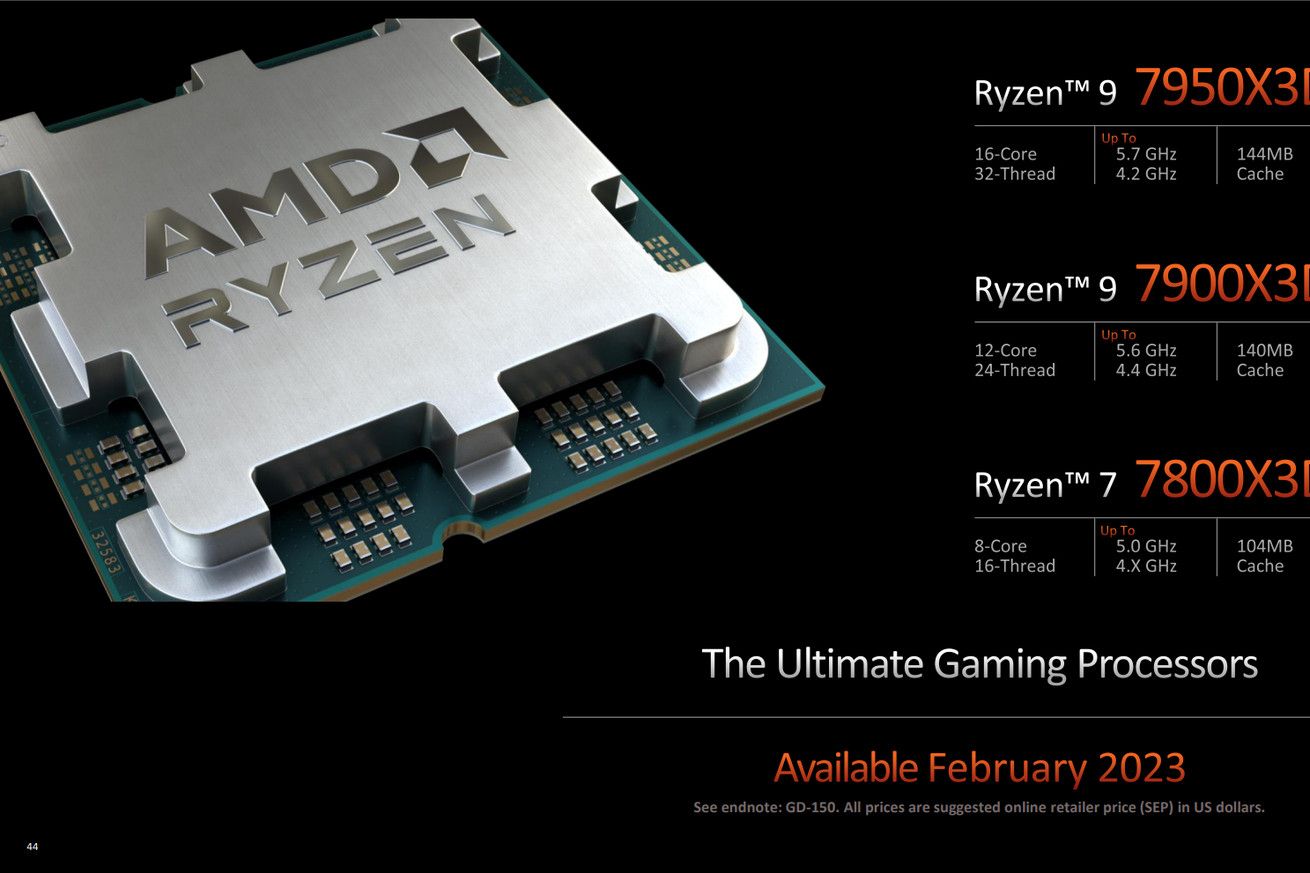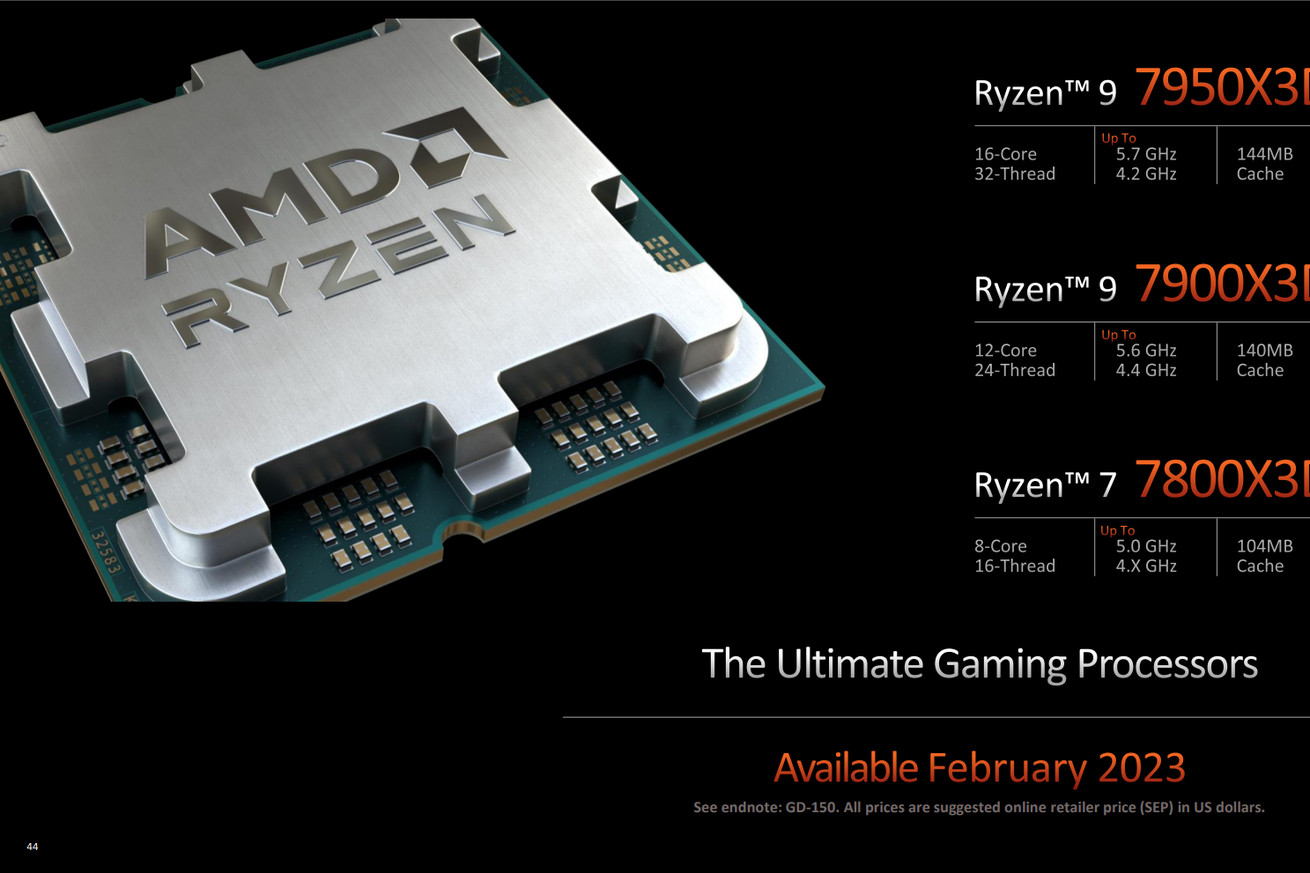
AMD’s 7000X3D chips will start at $449 when they take on Intel this spring
AMD has announced the pricing for its flagship 7000X3D chips as well as when you’ll be able to get them. The Ryzen 9 7950X3D will cost $699, with the 7900X3D coming in at $599. Both chips will be available on February 28th. The Ryzen 7 7800X3D, meanwhile, has seemingly been delayed a bit and will be released on April 6th for $449.
When AMD announced the chips last month, it was exciting to see that the company was bringing 3D V-Cache technology to even more chips in its lineup. The Ryzen 7 5800X3D was the previous standard-bearer for the tech, and that chip received a lot of praise — what would chips with up to double the number of cores be capable of?
The prices also seem pretty good for what you’ll be getting. The flagship 7950X3D has 16 cores with 32 threads and 144MB of cache. At $699, it’s definitely more expensive than Intel’s flagship Core i9-13900K, which retails for around $589 and has eight performance cores and 16 efficiency cores, for a total of 32 threads. However, AMD is promising that it’ll beat Intel’s gaming and productivity performance, and if that ends up being true, it may just be worth the price premium.
Moving on to the chips people are more likely to actually buy, the 7900X3D has 12 cores with 24 threads and 140MB of cache, while the 7800X3D has eight cores and 16 threads with 104MB of cache. It’s hard to directly compare these chips to Intel’s lineup — Core series chips use a big.LITTLE architecture versus Ryzen’s more standard construction and are built using a 10nm process versus AMD’s 5nm tech.
But these prices do set AMD up to be pretty competitive with Intel’s offerings like the 13900K and the $409 Core i7-13700K, if the chips deliver the performance we’re anticipating.
AMD’s also touting that the 7000X3D series is a drop-in replacement for the AM5 motherboards that were released with the standard Ryzen 7000-series, though they will require a BIOS update. These are high-end chips, so you’ll likely need a decent cooler to go with them. AMD recommends an all-in-one water cooler with a rad that’s at least 280mm.

